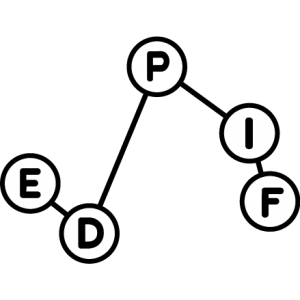Click here to download the IPT 2016 Problem list in PDF format.
Release date: June 30, 2015.
Last revision : July 2, 2015.

1. Popsicle stick cobra
What and how do the speed and height of the wave travelling in a popsicle stick bomb depend on?
2. The torque
Why do screws loosen when they are vibrated? Under what conditions is it possible to use vibration to loosen them? Can the screws be made to tighten using vibrations?
 3. Cooling Jug
3. Cooling Jug
In the old days, a clay pot cooler (also called a zeer or pot-in-pot cooler) was often used for keeping foodstuffs fresh in very hot and dry areas. Water was used to cool the inner pot as it flowed through a porous surface (such as sand) and subsequently evaporated. What is the minimum temperature that can be achieved using such a device and what does this minimum temperature depend upon? Explain what determines the rate of cooling?
4. Ferromagnetic sea
Design a ship which is able to move around on an ocean of a ferromagnetic fluid (ferrofluid) using variable and/or permanent magnets as part of the propulsion system. What is the maximum speed that can be reached by such a ship? In developing your design, you should base the principle of the ship movement on the interaction between the fluid and the field associated with the magnets.
5. Cracks on the glass
When a piece of glass is struck with a hammer, it may not break, but can crack instead. How does the density of the cracks depend on the distance from the point of impact? How does the crack density distribution depend on the impact force and on the parameters associated with the glass plate?
6. The “silencer”
Nobody likes neighbours who love listening to loud music! Propose a design for an electromagnetic cannon that is easy to make at home and which will generate electromagnetic disturbances strong enough to disrupt a neighbour’s sound system. Propose your own criterion for the minimum level of noise required assuming that your main goal is to make your neighbor to stop listening to the music. Explain how the answer will change for a PC with an acoustic system. You should assume that the sound system is 5 metres away from you in a neighbouring room and that there is a 0.5 m ferroconcrete wall separating the two rooms. Note that your setup should not be able to injure the neighbour or his family and pets.
7. Greenhouse effect
Greenhouses are used to encourage vegetable growth and to increase the temperature using nothing but solar energy. What is the highest temperature that can be reached in a 1m² greenhouse?
8. Drop-jumping-jack
Build an apparatus that is capable of throwing a water drop on to a still water surface at a controlled angle of incidence. Explain the physics of how the drop can be made to bounce and optimize your design so that the drop bounces on the surface the maximum number of times. How does the average number of bounces depend on the incident angle, velocity and size of the drop? Will your results change qualitatively if you used honey instead of water?
9. Sultry day
If you look along a heated surface the image often appears hazy because of density fluctuations in the heated air above the surface. Can one determine the temperature of the surface using this effect? What is the precision of such a measurement?
10. Water bomb
A balloon filled with water is thrown from a large height. How far will the water splash after the balloon hits the ground? What parameters influence the range of splashing and how?
11. True quantum randomizer
Propose a random number generator with more or less uniform and stable probability distribution which exhibits strongly quantum behaviour. Consider ways to optimize the device in order to achieve the maximal bit rate or minimal response time.
12. Half-empty bottle
If you push a horizontally lying bottle half-full of water, it will roll forward with an oscillating speed. What does the magnitude of the oscillations in speed depend upon and how?
13. Cross-talking metronomes
One hundred metronomes are laid-out on a table and set running at random intervals. After a while their motion will become synchronized. What is the time required for all the metronome oscillations to be in phase? What are the important parameters that influence this phase locking behaviour?
14. Sticky balloon
When a balloon is rubbed on your hair it can often be made to stick to the ceiling. How long can such a balloon hang suspended? How does this time depend on its size, weight and the ambient conditions?
15. Electric fountain
Make a fountain that pumps water continuously using only the energy of two AA batteries. Determine the maximum height that the water pumped by your fountain can reach and compare this to the theoretical maximum height. Determine the key parameters that influence the maximum height.
16. Magnetic cannon
Consider a line of steel balls that are stuck to a strong magnet. If an additional ball collides with the line, the final ball will be ejected at high speed. Determine the maximum speed that the final ball can have. How does this speed depend upon the position of the magnet in the line and other properties of the system?
17. Looking for the signs of civilization
It is difficult to imagine a civilization without war. Propose the least expensive setup that is required to observe the explosion of an atomic bomb of Hiroshima strength in the Alpha Centauri solar system. How will the answer change for a H-bomb (100 Mton TNT equivalent)?


























